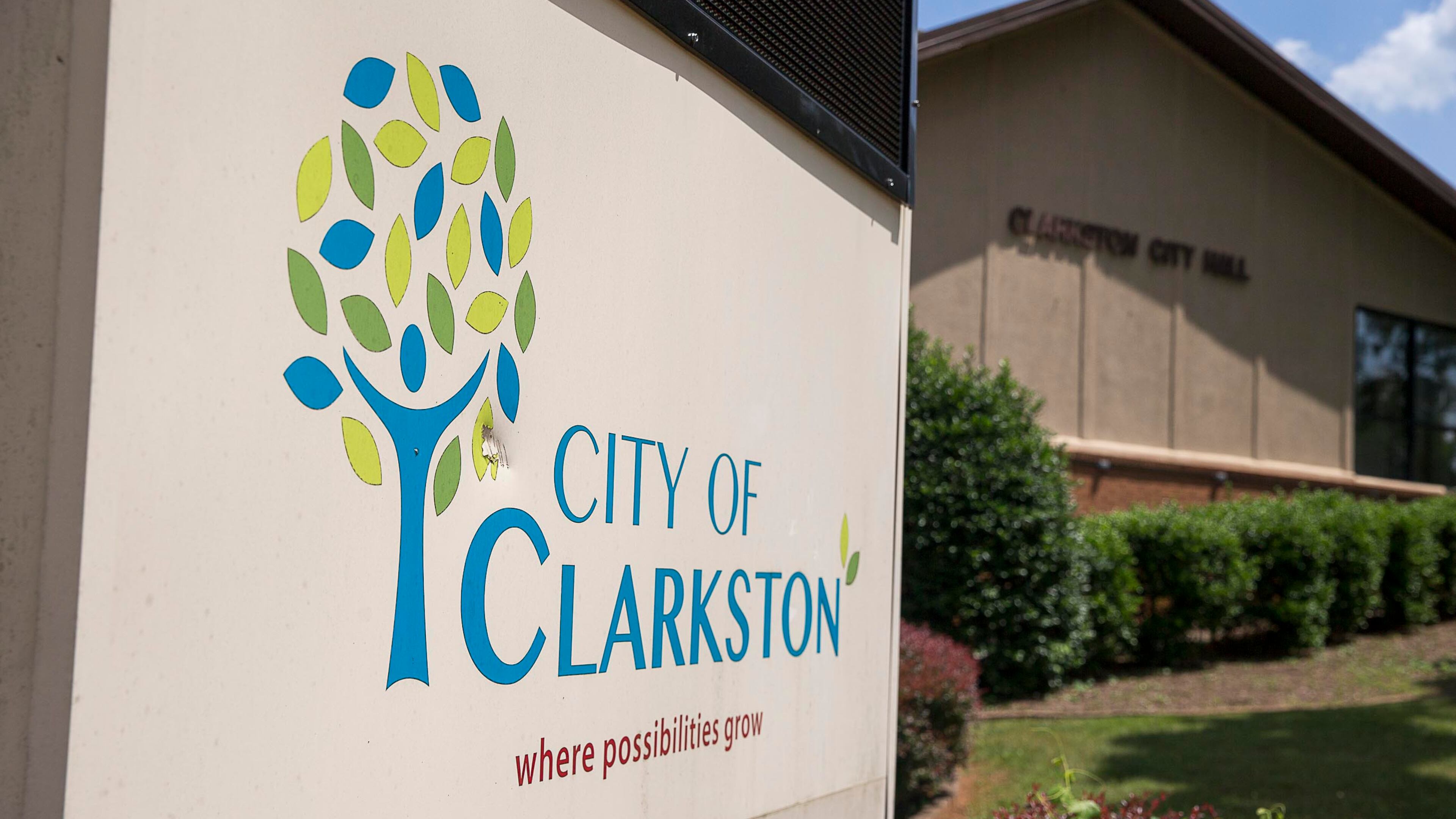Study says Clarkston, Morrow, Riverdale using fees to pad budgets

In the 1960s, the city of Ludowici in southwest Georgia was so well known for its speed traps that the governor put up billboards to warn drivers.
More recently the tiny hamlet of Warwick, with its population of 423 people in Worth County, held the distinction of collecting the largest amount of traffic fines per capita between 2008 and 2012 because of tickets issued on Ga. 300.
Now the libertarian group The Institute for Justice wants to add three more cities to the list of Georgia municipalities that it says pads their budgets through traffic tickets and citations.
Between 2012 and 2016, Clarkston, Morrow and Riverdale generated between 14 percent and 25 percent of their revenue from tickets for speeding infractions or home code violations — a funding source second only to property taxes, according to The Institute for Justice study released Thursday.
That compares to 3 percent for other similarly sized cities in Georgia, the study says.
Officials from the cities dispute the study’s findings and say the collections are about keeping their communities safe and making them destinations for residential living.
“In Morrow, we don’t think of enforcement as a source of revenue,” City Manager Sylvia Redic said.
The Institute for Justice is involved in a lawsuit against Doraville claiming that DeKalb County city hands out tickets and fines at such a high rate that it violates of the U.S. Constitution.
The group, which studies taxation by citation across the United States, focused on the three Georgia cities in the new study because they are in the Top 10 of a U.S. Civil Rights Commission study on municipalities with populations over 5,000 that have high revenue from fines and fees.
Most of the tickets were for minor traffic infractions or aesthetic code violations such as outdoor storage, cracked sidewalks or home code violations, said Dick Carpenter, one of the researchers on the report.
“These are often offenses that just don’t represent significant threats to public health and safety, but yet continue to generate significant amounts of revenue,” he said.
Thousands of cars a day travel through the communities and not all drivers observe the law, putting citizens and other motorists in jeopardy, city officials said. And enforcing code requirements keeps issues with individual homes from tanking property values and making the cities unattractive — especially in places like Riverdale, where rental houses outnumber those owned by homeowners, said Riverdale City Manager Scott Wood.
“Enforcement is not a revenue generator, it is a means to correct dangerous behavior,” Morrow Chief of Police James Callaway said. “Sure a consequence of enforcement is fines, but that has not been and is not our culture. We want our officers to go out and put in a day’s work and in doing that, enforce the law.
“I believe the public wants that as well.”
Study: Fees and fines soften blow
Between 2012 and 2016, Clarkston collected 25% of its revenue from traffic tickets and code violations, the study found. Morrow and Riverdale collected 17 % and 14% respectively, the report said.
The aggressive ticketing appeared designed to soften the blow of revenue lost after the recession of 2008, when the bottom fell out of home values that left less affluent cities searching for ways to pay for municipal services such as fire, police and schools, the researchers said.
The collections from each city peaked in 2012 and have fallen as the economy has improved and rising home values have made it easier to generate adequate municipal funding through property taxes, according to the study.
The impact of the collections, Carpenter said, is a growing distrust of government and the possibility of litigation, such as in the case of Doraville which is being sued by the Institute For Justice after taking in $9 million in fees between 2008 and 2012.
The city leaders acknowledge there has been a decrease in collections recently.
Robin Gomez, city manager of Clarkston, said revenue from tickets and fines have dropped each of the last four years — from 20% in 2016 to a projected 8.4% this year. Fine collections are about 10 percent this year in both Riverdale and Morrow.
“Our focus has been on issuing fewer citations,” he said. “We have been focusing on more verbal and written warnings and working with folks to correct behavior and abate problems.”
Riverdale’s Wood said there is another thing to consider: not all budgets are equal. He said some cities get a larger share of taxes from county governments, depending on revenue agreements. The bigger their revenue source, the smaller their collections of traffic and code violation fees look in comparison.
“Riverdale has none of those, so the base number used to calculate our “percentage of revenue” may be skewed or perhaps even inaccurate if total revenue sources are not considered,” he said.
Clarkston, Morrow and Riverdale collected outsided fees from traffic stops and code violations between 2012-2016, according to report from a group that studies taxation. Here are demographics of the cities and their budgets.
Clarkston
Population: 12,850 (in 2017)
Budget: $15 million
Morrow: 7,475 (2017)
Budget: over $12 million
Riverdale: 16,440 (2017)
Budget: $13.5 million (fiscal 2019)

